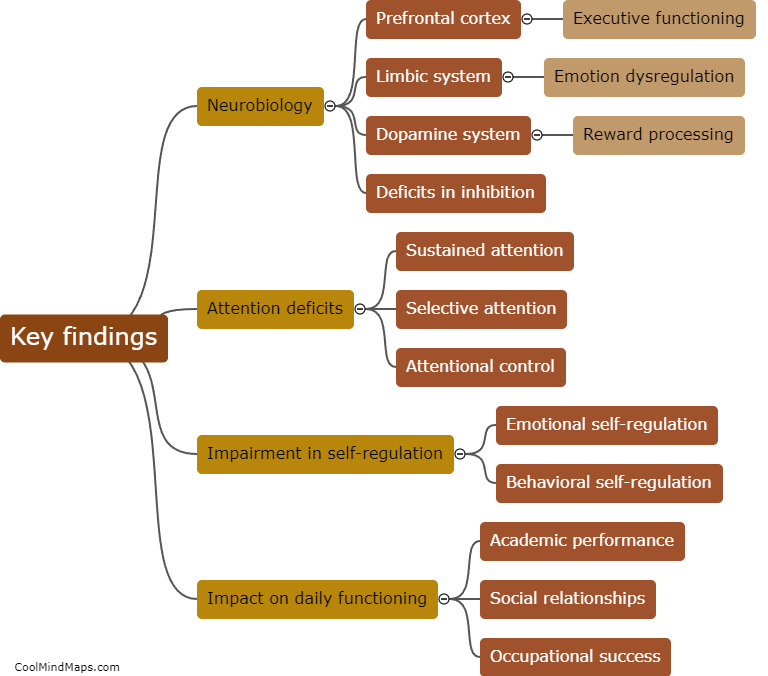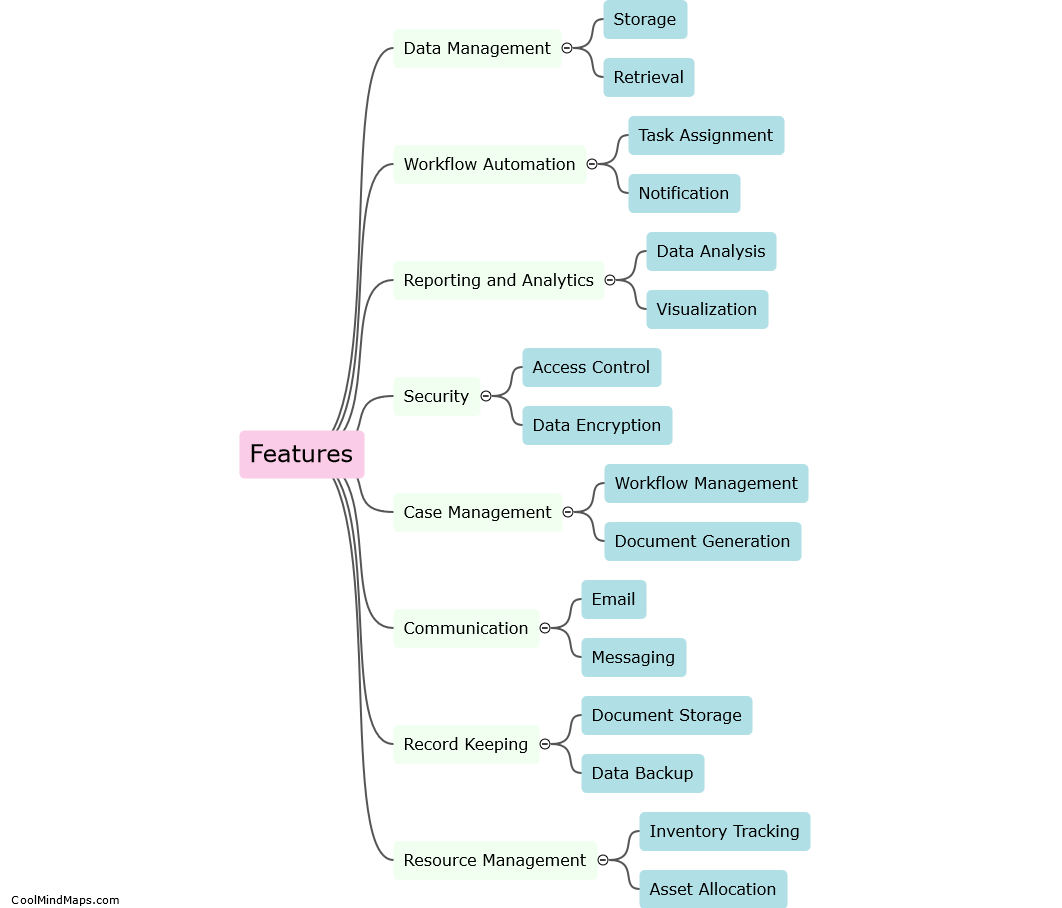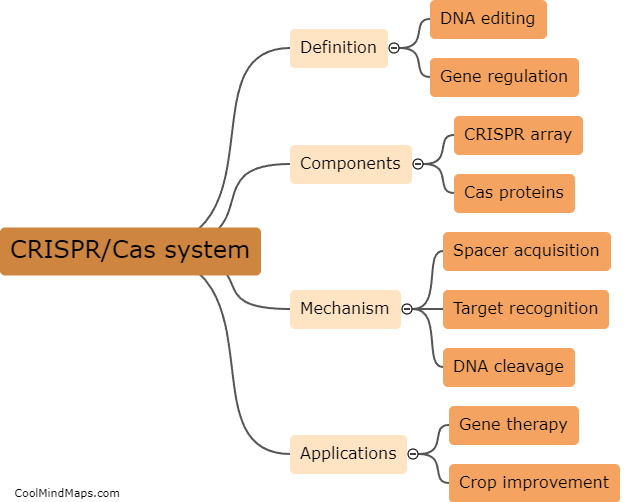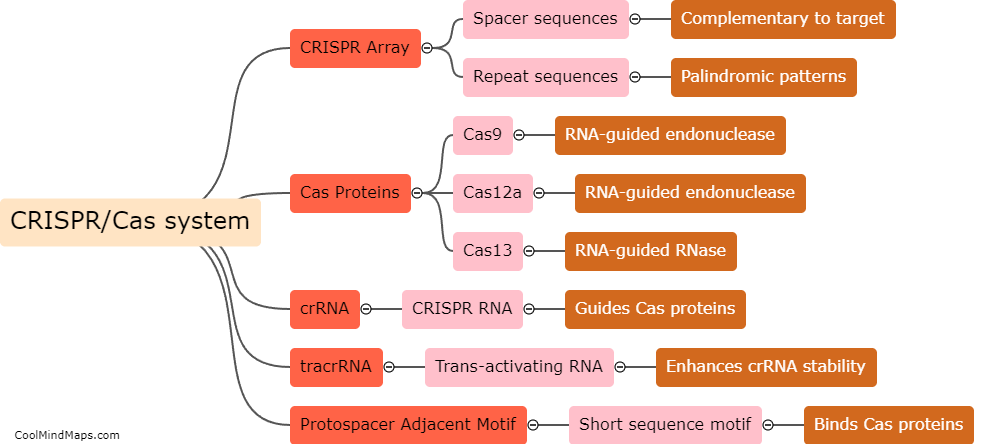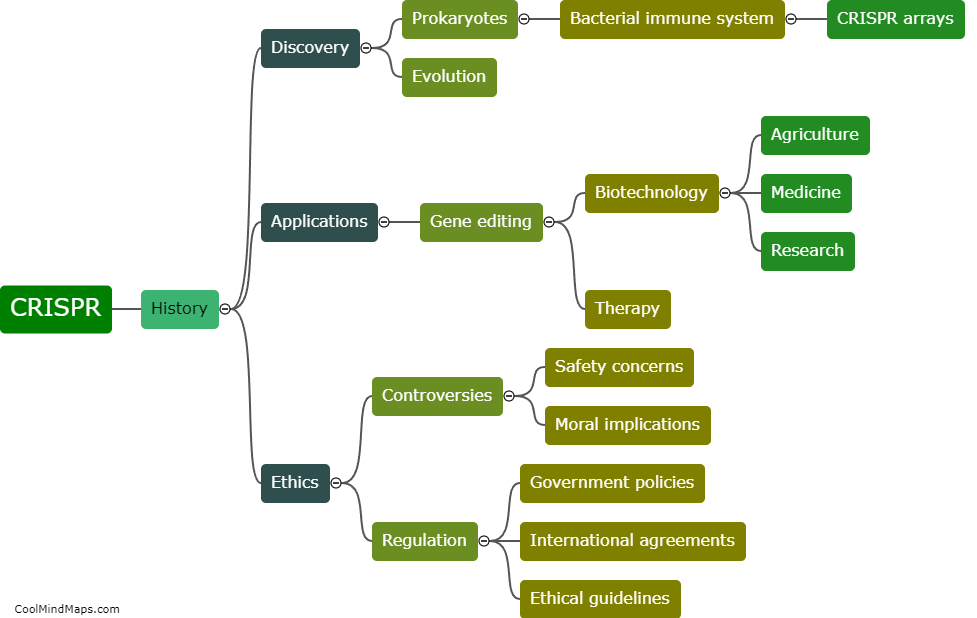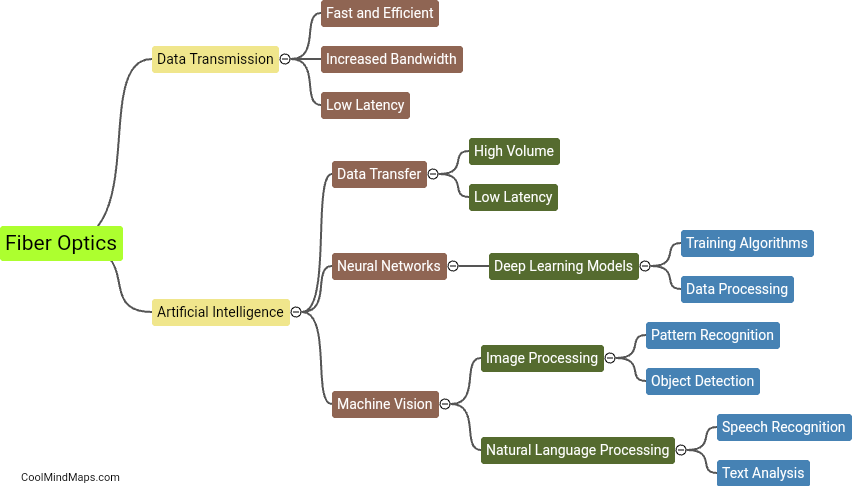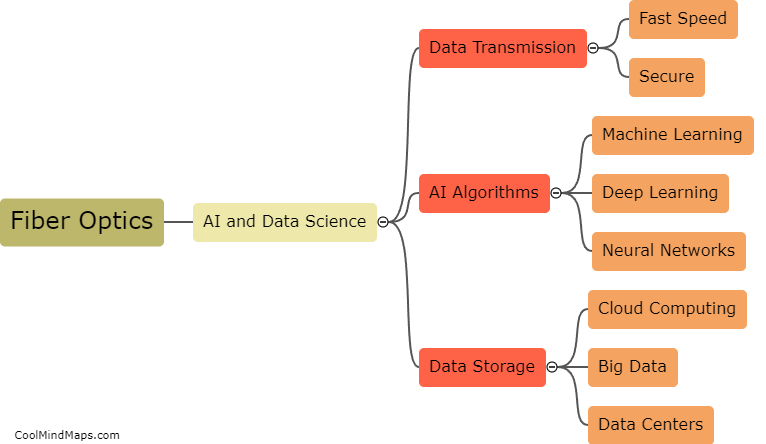What is the role of Cas proteins in the CRISPR system?
Cas proteins, or CRISPR-associated proteins, are a crucial component of the CRISPR-Cas system. They play a central role in the defense mechanism of the prokaryotes against invading genetic material, such as viruses and plasmids. Cas proteins are responsible for the recognition, binding, and cleavage of foreign DNA or RNA that matches the specific sequence stored in the CRISPR array. These proteins work in conjunction with guide RNAs produced by the CRISPR array, guiding them to their target sites and facilitating the precise editing or destruction of the foreign genetic material. Moreover, Cas proteins also possess nuclease activity, allowing them to cleave the DNA or RNA of the invader and rendering it inactive. The versatility and specificity of Cas proteins have made them invaluable tools in genetic engineering, enabling scientists to perform precise and efficient genome editing.

This mind map was published on 8 November 2023 and has been viewed 107 times.

